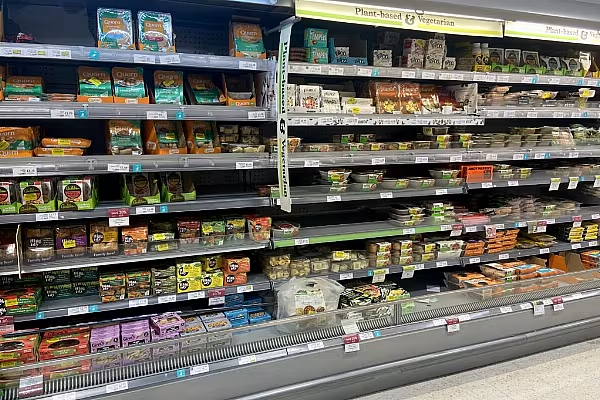Retailers and suppliers should come together to develop a joint approach to the dramatic fall in demand for vegan food products, category management and shopper marketing firm Bridgethorne has noted.
The firm has called on retailers and suppliers to come together in an ideation process to create an industry response to the recent fall in demand for vegan food products.
Price Pressures
Recently, revenues at Beyond Meat, the American producer of vegan food products, fell by nearly 31% in the quarter to the end of June, compared to the year before – reflective of a move by shoppers to opt for lower-priced animal protein over plant-based alternatives, due to cost-of-living pressures.
According to Bridgethorne, what is happening at Beyond Meat is not an isolated case. Meatless Farm recently made its 50-strong workforce redundant and went into administration, Oatly has withdrawn its dairy-free ice cream in Britain, Nestlé pulled two of its plant-based brands from shops in the UK due to a lack of demand (and announced that it was pulling its plant-based Garden Gourmet and Wunda brands from retail in the UK and Ireland), Heck cut its vegan range from ten products to two, and drinks company Innocent has also removed its dairy-free milk range.
This follows a report earlier this year by Straits Research, which noted that the UK vegan food market was growing considerably, largely driven by increased health awareness. It noted that 40% of UK consumers wanted plant-based alternatives to meat and dairy, with the UK vegan food market growing at an overall rate of 9.58%.
Collaboration Ideation Process
So, how can retailers and suppliers come together to address such a seismic shift in what was one of the highest growth categories? Gina Overton, director at Bridgethorne, says that a collaborative ideation process can build both strategic and tactical commercial, category, shopper and channel opportunities, as well as addressing market changes of mutual significance to both retailers and suppliers.
“An effective ideation process can help suppliers and retailers collaborate to address situations like this, as well as to unlock joint opportunities in other areas and develop category and activation plans,” Overton said. “We have already seen in other areas how the ideation experience and process has enabled the development of long-lasting collaborative ways of working between both retailer and supplier.
“In bringing supplier and retailer decision-makers together, they can unlock category-building initiatives and co-create strategic key drivers and tactical ideas for mutual benefit.”














